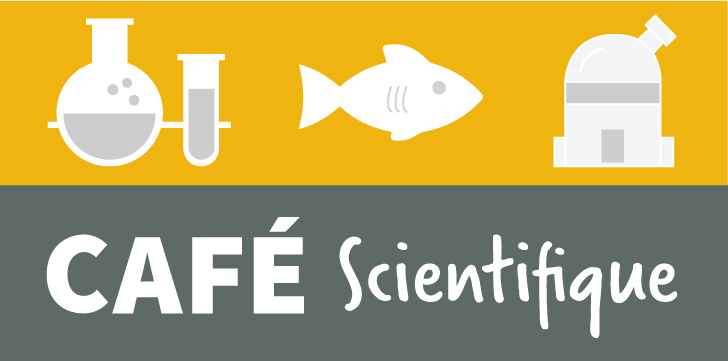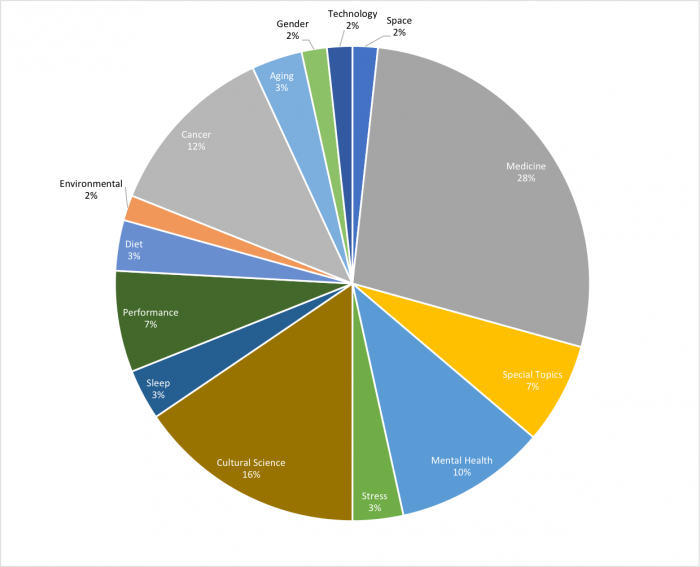
Café Scientifique: Selecting Topics and Speakers that Inspire
Since 2007, Stanford Blood Center (SBC) has hosted over sixty speakers who have presented on such topics as “Stress, Coping, and Health: Lessons from Wild Baboons,” “Seven Secrets to Storytelling,” and “Sleepless Nights: Sleep Problems and Disorders.” Café Scientifique — also known as Café Sci — is an international network of informal groups that bring scientific debate into local communities. There are several Café Sci forums in the Bay Area, and each group approaches their selection process a bit differently.
 Here at Stanford Blood Center, we take a very calculated approach. We have an extensive archive of past Café Sci events, including presenters, topics, records of attendance, and YouTube views of presentations that have been recorded for posterity. The most frequent topics include Medicine, Cultural Science (current event topics), Cancer, and Mental Health. In selecting topical areas for future presentations, we often try to choose underrepresented subjects. For instance, this upcoming presentation is on Women in Science: A Panel Discussion Exploring Gender in Scientific Fields. Gender has been only historically discussed 2% of the time at SBC’s Café Sci events. Additionally, the Café Sci format typically only features a single presenter, but lately we have been exploring the idea of inviting panels of speakers to bring a variety of perspectives to a theme.
Here at Stanford Blood Center, we take a very calculated approach. We have an extensive archive of past Café Sci events, including presenters, topics, records of attendance, and YouTube views of presentations that have been recorded for posterity. The most frequent topics include Medicine, Cultural Science (current event topics), Cancer, and Mental Health. In selecting topical areas for future presentations, we often try to choose underrepresented subjects. For instance, this upcoming presentation is on Women in Science: A Panel Discussion Exploring Gender in Scientific Fields. Gender has been only historically discussed 2% of the time at SBC’s Café Sci events. Additionally, the Café Sci format typically only features a single presenter, but lately we have been exploring the idea of inviting panels of speakers to bring a variety of perspectives to a theme.
At SBC, presenters must meet a few criteria: They must be working in a scientific field, must have some connection to Stanford (i.e., Stanford University, Stanford Health Care, or Stanford Blood Center), and must be a confident public speaker. Comfort with public presentation is a newer addition to the list of criteria, because we have found that more engaging speakers tend to result in better-attended events.
Presenters are chosen several months in advance, and must be vetted by the Stanford Blood Center Marketing and Communications Department. We often will reach out to several speakers before choosing the one that we feel will be a good match for our audience. A presenter’s work may be especially relevant because they speak to a topic that is timely, or because they offer a deeper dive into more familiar territory, or simply because they have a fresh perspective to offer. This vetting process helps to ensure that the speakers you’ll enjoy at SBC’s Café Sci events are compelling and their content is meaningful.
We often get our initial ideas for topics and speakers from Café Sci attendees or others in the community. If you think you might know someone who meets the above criteria, please send your suggestion to Victoria Somerville, vsomer@stanford.edu or 650-725-2540.
………………..
Visit our Café Sci page for upcoming events: https://stanfordbloodcenter.org/learn/cafe-scientifique/
